Contents
John Maynard Keynes
THE ESSENTIAL KEYNES
Edited and with an Introduction by
ROBERT SKIDELSKY
PENGUIN BOOKS
An imprint of Penguin Random House LLC
375 Hudson Street
New York, New York 10014
penguin.com
This edition first published in Penguin Classics 2015
Introduction and Notes copyright 2015 by Robert Skidelsky
Cover photograph Corbis
Penguin supports copyright. Copyright fuels creativity, encourages diverse voices, promotes free speech, and creates a vibrant culture. Thank you for buying an authorized edition of this book and for complying with copyright laws by not reproducing, scanning, or distributing any part of it in any form without permission. You are supporting writers and allowing Penguin to continue to publish books for every reader.
The moral right of the author of the editorial material has been asserted.
ISBN 978-0-698-40851-7
Cover photograph Corbis
Version_1
PENGUIN  CLASSICS
CLASSICS
THE ESSENTIAL KEYNES
JOHN MAYNARD KEYNES (18831946) is widely considered to have been the most influential economist of the twentieth century. His key books include The Economic Consequences of the Peace (1919); A Treatise on Probability (1921); A Tract on Monetary Reform (1923); A Treatise on Money (1930); and his magnum opus, The General Theory of Employment, Interest and Money (1936).
ROBERT SKIDELSKY is Emeritus Professor of Political Economy at Warwick. His three-volume biography of Keynes received numerous awards, including the Lionel Gelber Prize and the Council on Foreign Relations Prize.
Economics is a very dangerous science
John Maynard Keynes,
Thomas Robert Malthus
Preface
I have arranged the selected material in such a way as to help the reader rather than for strict consistency. Almost all the excerpts are taken from The Collected Writings of John Maynard Keynes, published in thirty volumes between 1971 and 1989. They are numbered sequentially and are identified by the volume number (CW, ), title and date of original publication. The page numbers of the volumes of the Collected Writings from which they are taken are included in square brackets, marking the end of the page they refer to. I have grouped together some excerpts under the following topics: The Great Depression, Policies for the Slump, The New Deal and Full Employment Policy. Those readers who want a quick education in Keynes as an analyst of, and policy-maker for, slumps should turn to excerpts 18, 2831 and 33.
This collection would not have been possible but for the magnificent Collected Writings. Elizabeth Johnson was the first editor; she was succeeded by Donald Moggridge. I would like to thank the Royal Economic Society for permission to publish excerpts from these volumes; Kings College, Cambridge for permission to publish excerpts 1, 2, and 3 from the unpublished papers of J. M. Keynes; Paul Davidson, Meghnad Desai, Geoff Harcourt, Pete Mills and Rod ODonnell, for their comments on sections of the draft; Kings College archivist Patricia McGuire in helping me locate some handwritten notes in the Keynes Papers; and my impeccable copy editor, David Watson. My research assistant Pete Mills was invaluable in downloading the material I selected from the electronic edition of the Collected Writings.
List of Abbreviations
CW The Collected Writings of John Maynard Keynes
EB Essays in Biography
ECC The Economic Consequences of Mr Churchill
ECP The Economic Consequences of the Peace
EP Essays in Persuasion
EPG Economic Possibilities for our Grandchildren
GT The General Theory of Employment, Interest and Money
JMK John Maynard Keynes
KP Keynes Papers, Kings College, Cambridge
ICU International Clearing Union
QTM Quantity Theory of Money
RT A Revision of the Treaty
TMR A Tract on Monetary Reform
TM A Treatise on Money
TP A Treatise on Probability
Introduction
Keyness ideas will live so long as the world has need of them
Robert Skidelsky
I
There are hardly any single-volume selections of Keynes writings, and no comprehensive ones. This selection aims to make them much more accessible to both students of economics and the general reader perplexed and confused by the war of economists which broke out afresh with the economic collapse of 2008. By this time Keyness star had long been in eclipse. A new orthodoxy had arisen which cut economics off from the rest of life, claimed that market economies were naturally stable, and that the only macro-economic task of government was to maintain sound money. Robert Lucas, the high priest of the new classical economics, is said to have told his students at Chicago University, We need spend only ten minutes on Keynes; we know it doesnt work. The things which worked were unimpeded markets.
Keynes had set out to destroy the argument of classical economics that a competitive market economy would always ensure full use of potential resources. He invented almost singlehandedly a new branch of economics, macro-economics, to show why this was not true, and to justify active fiscal and monetary policy. The task of overturning orthodox theory seemed all the more urgent in the wake of the Great Depression of 192933. The result was The General Theory of Employment, Interest and Money, whose publication in 1936 is conventionally taken to be the start of the Keynesian Revolution. Its main policy fruit was the commitment, till the mid-1970s, by most Western governments, to maintain high and stable levels of employment. The charge that Keynes failed to provide secure micro-foundations for his macro-theory, as well as the contentious implications of that theory for the role of state, led to the view that Keynesian theory was flawed and Keynesian policy led to inflation.
So when the world economy collapsed in 20089 the only thing most younger economists, policy-makers and businessmen knew about Keynes was that one did not need to know anything about him. He had largely vanished from their textbooks, briefings and indeed from their consciousness. This left them unprepared for the catastrophic nature of the economic collapse. Today macro-economics is disabled. We are still struggling experimentally with the aftermath of the banking collapse. People talk of the need for a new Keynes. But the old Keynes still has superlative wisdom to offer for a new age.
Students and others are hungry for clues to the riddle of economic life. There have been many books about Keynes, including a rather massive one of my own. But Keyness own writings are largely unavailable. The purpose of this single-volume Keynes reader I have called it The Essential Keynes is to give the reader a flavour of the quality of Keyness mind, style and range, and his approach to ethical, theoretical and practical problems which, so far from having vanished, clamour for a contemporary answer. Keynes is known, if at all, only as the creator of a short-run theory of fiscal stabilization. This was the fiscal tool which emerged from the ferment of ideas in his day. But it was in his explorations of the problem of capitalist instability, and his futurist vision of a world without work, that many today will find their inspiration. My hope is that the selections I have chosen, which include some writings never before published, will provide both meat for the student and food for a wider public. Above all, this book provides readers with the opportunity to acquaint themselves with one of the most remarkable thinkers and characters of the twentieth century.

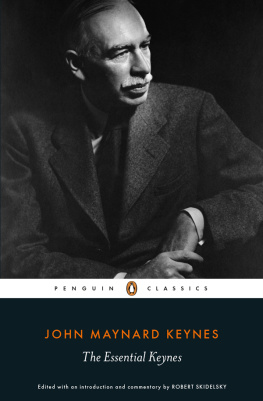
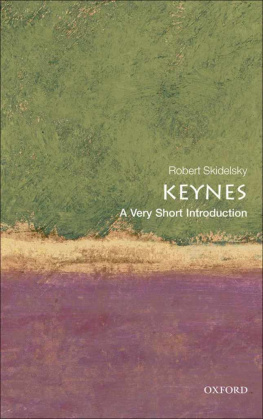
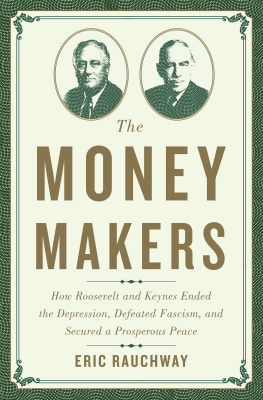
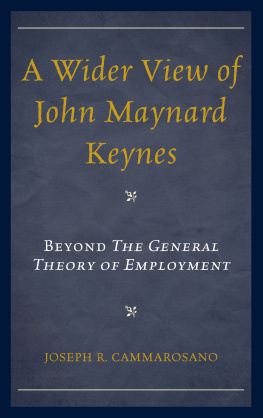

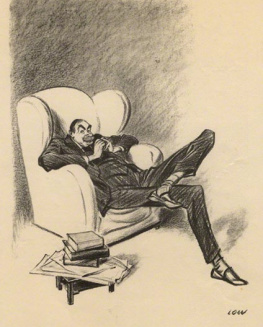
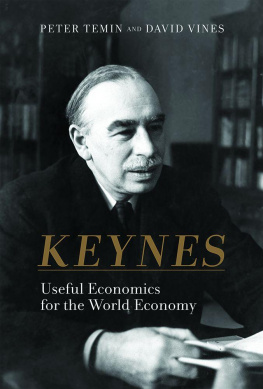
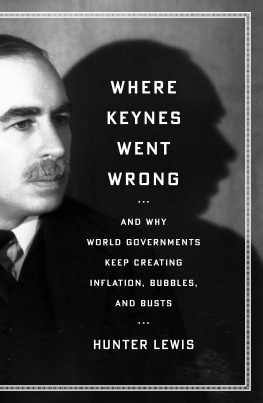
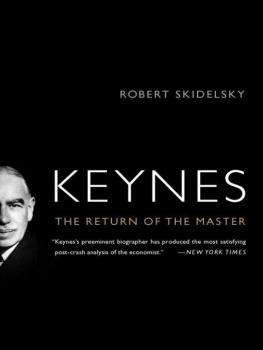


 CLASSICS
CLASSICS